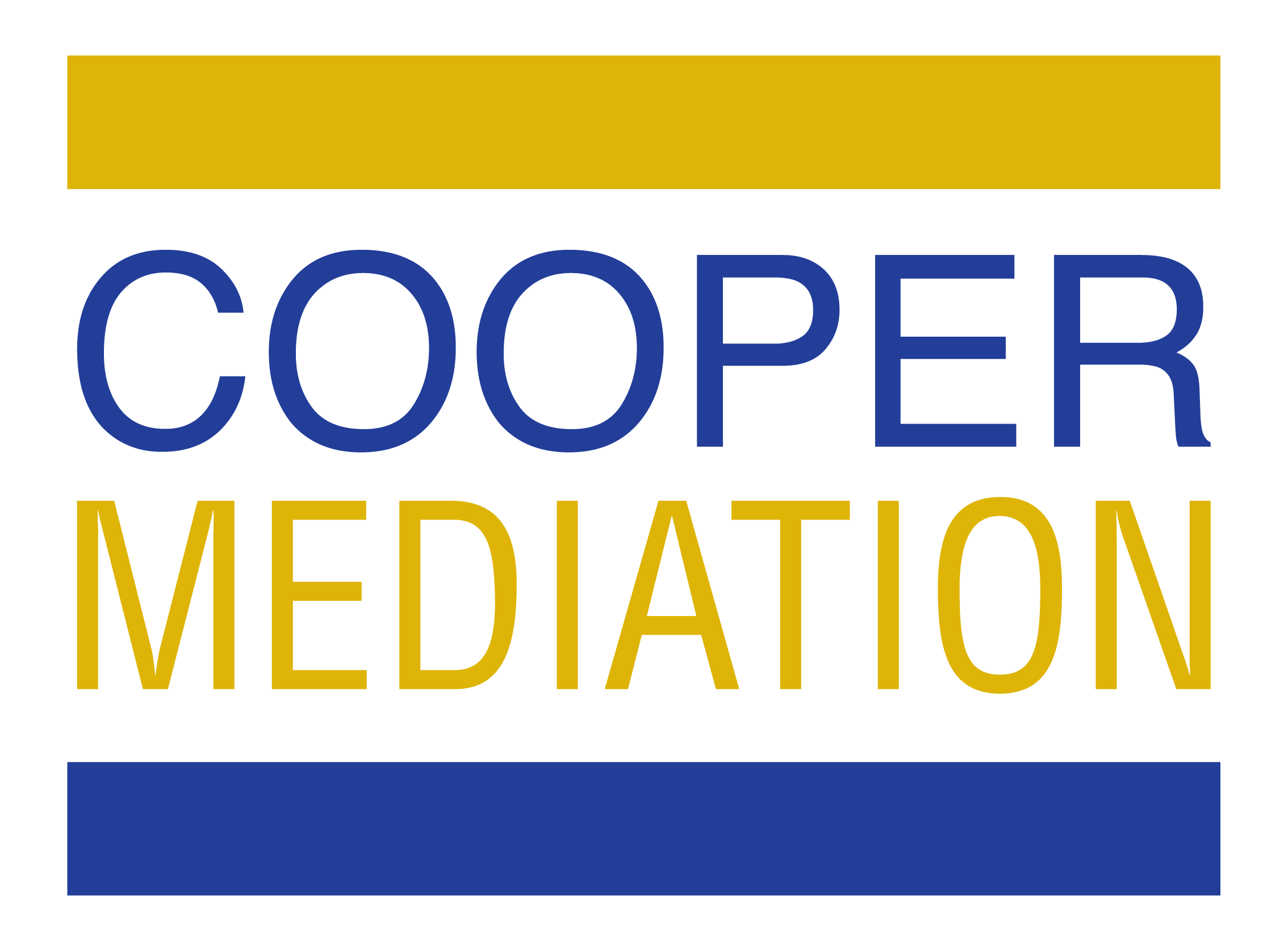
16 Jul Five Things You Need to Know About Mediation
Mediation is a very complex and dynamic process. That said, I have tried to set out my thoughts on five things you need to know and consider as you prepare for and conduct a mediation.
-
Mediation is an Opportunity
Mediation has been defined by some as an opportunity – whether to settle the matter, to learn more about the matter, the opposing party, their counsel, the strength or weakness of their case or your client’s case, the reasons why the matter cannot be settled, etc.
Mediation is an opportunity to communicate your views about the matter, learn something more about the views of the opposing party or their counsel and narrow the “goal posts” or zone of possible agreement.
Mediation is undoubtedly an opportunity for the parties themselves, as decision-makers, to make an informed decision. This will work best if there is a full, frank and fair discussion of the issues preceded by a full exchange of information and documentation.
-
Work Backwards
Mediation is the destination. In order to arrive at the destination in the best position to resolve the matter, it is imperative that you consider what needs to take place in advance of the mediation and when it needs to take place in relation to the date set for mediation.
-
Openings and the Joint Session
A newcomer to mediation, presumably the individual decision-maker, should not be hearing about the mediation process for the first time at the mediation from the mediator. As a newcomer, they should be made to feel as comfortable as possible while attending the foreign environment of a mediation. Thus, the mediator’s opening should pick up on and reinforce things they have already been told by their counsel. This serves to enhance the status of counsel for the individual decision-maker as many of the things that will be said by the mediator will have already been covered in a prior meeting between the individual decision-maker and their lawyer.
There are always at least two sides to a litigated matter. Mediation openings should provide each decision-maker with a better understanding of the strengths and weaknesses of their case and of the opposing case which they face. This understanding will be the result of reading the mediation memoranda, listening to the openings and participating in the negotiation process.
-
The Importance of Caucus
After the opening, general or plenary session, the mediator will spend time with each party in private discussions. As counsel, you will have to decide whether you wish to have some or all of your private discussions with your client with the mediator present. You can use the mediator as a sounding board or negotiation coach.
You need to determine if the mediator is working under a premise that caucus is open [in which case anything you or the decision-maker says in caucus can be repeated by the mediator to the other side if it is conducive to resolution] or closed [in which case nothing you or the decision-maker says in caucus can be repeated by the mediator to the other side without your permission].
-
Mediators are Not Magicians
Mediators can only work with the information and documentation provided. Mediators cannot manufacture or rewrite the evidence. On most occasions, a mediator will embark upon the mediation with sufficient information and documentation to be a positive catalyst to resolution. The mediator may uncover issues or interests which may stand in the way of resolution or motivate prospects for resolution.
Use the mediator to try to ascertain the settlement strike zone or zone of possible agreement if it exists.
Conclusion
This post scratches the surface of a very complicated and dynamic process. I hope it has stimulated your thought process so that you put time, thought and care into preparation for and conduct of a mediation.
If you’d like further tips, click to read the full article.

ABOUT THE AUTHOR
Jonathan T. Cooper of Cooper Mediation Inc. is the taller, younger and non-bow-tied mediator with Cooper Mediation Inc. He mediates primarily, but not exclusively, in the area of personal injury and insurance.
Jon can be reached at jonathan@coopermediation.ca or at (647) 993-2667. To schedule a mediation with Jon, visit: http://coopermediation.ca/jonathans-online-calendar/.
